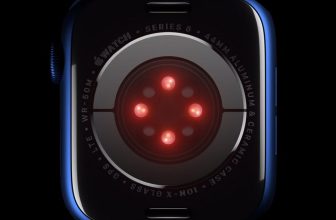As time creeps by in the Northwest Detention Center, pressure builds in the muscles behind Muhammad Zahid Chaudhry’s eyes. The swelling tissue puts pressure on his optic nerve. For Zahid, as he’s called, the world blurs into a series of muted tones. Subtitles he could once read look like characters in a language he doesn’t understand. His eyesight is fading. And if he stays untreated in the stressful, dirty conditions of the detention center for much longer, it might never return.
The decorated, disabled veteran and legal permanent resident suffers from thyroid eye disease, a degenerative condition that can result in blindness if not treated. He’s originally from Pakistan, and has lived in the US for more than 25 years. He’s married to Melissa Chaudhry, a US citizen who ran for Congress against Adam Smith last year. The pair has two young children together.
Zahid has lived with the threat of deportation for years, stemming from the government’s claims that he was dishonest about a long-ago fraud conviction on his visa application. He applied to stay in the country based on his service in the military.
On August 21, Immigration and Customs Enforcement (ICE) agents detained him based on an old final removal order from 2008. He was taken directly from what was allegedly his citizenship interview. Based on court documentation and emails between Rep. Adam Smith’s office, USCIS, and ICE that Zahid’s family obtained after he was taken, the alleged interview appears to have been a vehicle to arrest him.
According to these pieces of documentation, even before Zahid’s citizenship interview, ICE had decided to act on the old order of removal, while USCIS had decided to deny his citizenship application.
While Western District Court of Washington appears to have recognized the medical emergency and has paved the way for his release—possibly as early as this week before Thanksgiving—it still may be too late to save his eyesight.
But neither Zahid nor his wife know for sure. After all, since his detention on August 21, no qualified doctors have been sent in to see him to assess the state of his sight. It was only after the court ordered ICE to come up with a briefing schedule so that the court could consider Zahid’s emergency release petition—called a habeas corpus petition—on medical grounds, Melissa says, that “all of a sudden, people started approaching him at [the NWDC] to coordinate his treatment.”
Melissa, their shared family, and their supporters have been working to get Zahid out of detention since the day agents took him. Melissa told The Stranger that on November 20, the Ninth Circuit Court of Appeals transferred an emergency motion for release pending decision to the Western District Court of Washington. The court immediately accepted the motion and, the following day, turned around an order that both forces ICE to hastily move on Zahid’s case—think hours, not weeks—and allows Zahid to respond to what ICE files.
Melissa says that ICE sent the filing on Sunday, November 23, and Zahid expects to receive it by physical mail. However, because Zahid is representing himself pro se, no one else can see his legal paperwork. Melissa told The Stranger that, to avoid further delays, Zahid requested that the family file his response, based on what he believed ICE would say.
She shared the majority of that response with The Stranger, excluding personal information, such as the couple’s children’s birth certificates. The response includes Zahid’s declaration stating that staff at NWDC only started coordinating his medical care the day the federal court issued its order. University of Washington (UW) neuroscientist and researcher Micaela Romero also wrote a five-page declaration about how the conditions in the facility and the lack of care worsen Zahid’s degenerative eye disease and traumatic brain injury (TBI).
Earlier in Zahid’s detention, Romero advocated to get Zahid removed from nearly a full week in solitary confinement, where detention staff subjected him to 24-hour bright lights. Because he uses a wheelchair, he could not stand up to cover up the lights with anything, and could not easily move to cover his face or head.
Zahid suffered significant harm from these conditions, Romero’s declaration states. Such lighting conditions are a known form of torture that cause severe psychological distress.
In addition to lack of proper treatment, Zahid is also subject to the conditions of the NWDC, Romero noted in her declaration on Zahid’s behalf. As La Resistencia has extensively detailed through direct testimonies of those inside, these conditions include extremely dirty spaces, inadequate and spoiled food, and medical neglect.
Stress has consequences on the body, Melissa says, and those consequences are showing up in Zahid’s.
“There are neuroinflammatory cascades that happen that make immune function decrease, that increase cardiac stress and risk of heart attack — that just make all kinds of inflammation worse, including the … muscles behind his eyes,” Melissa says. “All of the stress is increasing that pressure on his optic nerve. And that’s the real issue, if his optic nerves will be damaged. Other forms of blindness you can kind of fix. You can swap out lenses in the case of cataracts, other things like that. Optic nerve damage you cannot fix.”
It’s not hard to imagine how his eyesight could deteriorate so rapidly in such a place.
The deleterious conditions have also worsened his other health issues, including a service-connected traumatic brain injury (TBI). This increases the overall stress on his body: The worse one condition gets, the worse they all get, as his body fights to work.
Since his imprisonment, Melissa says that Zahid has also been denied his usual medications.
“He doesn’t have his standard medications for pain or for his thyroid issues or for his migraines or for anything else. I don’t know what they’re giving him,” she says. “He says it’s mediocrely sufficient for him to not be excruciating all the time. Just some of the time.”
But at all times, Zahid is in pain on some level, she confirmed—“It’s the point.”
“This is someone who has always come here legally, has never broken any US laws. He’s been here for 25 years doing nothing but contributing to his community and raising a family. Please wake up,” Melissa says, when asked if there was anything she wanted to say to readers. “If you haven’t already, please look at this and wake up. This was never about following the rules. He was taken at a citizenship interview.”
Melissa filed Zahid’s response on November 24. As far as she knows, she told The Stranger, the court has not yet ruled on anything. She’s already emailed his doctor to coordinate an appointment for eye treatment this week, and plans to set a place for him at the Thanksgiving table. She lives in hope.







